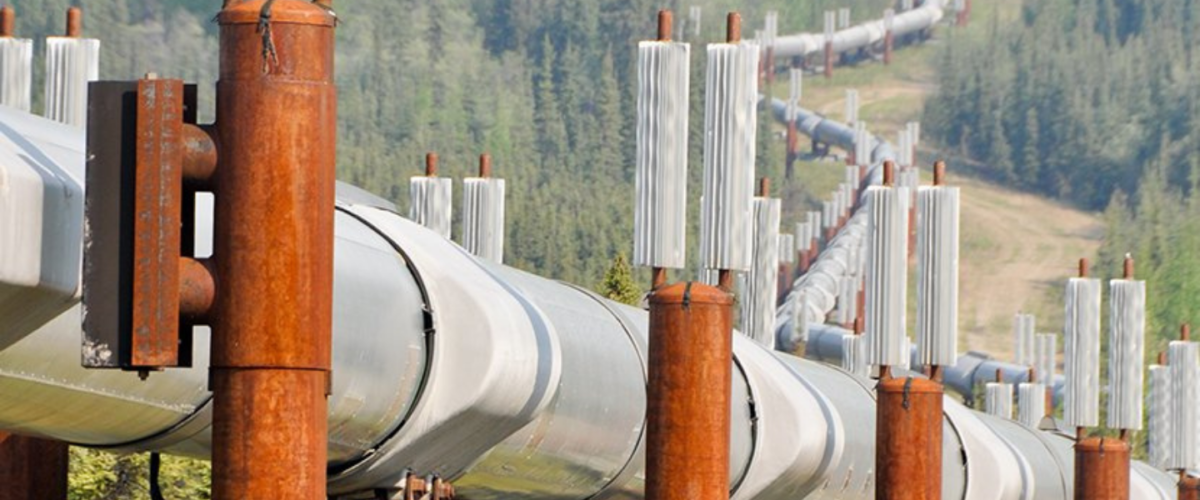This Federal Agency Closes Its Eyes To The Climate Crisis, So We’re Suing Them
Published Apr 24, 2020

An obscure but massively powerful federal agency rubber stamps new fracking pipelines, blatantly ignoring the threat this poses to a stable climate. We are taking them to court.
There’s a powerful agency that you might not have heard of. The Federal Energy Regulatory Commission (FERC) grants permits to build interstate fracked gas pipelines and compressor stations. If you’ve ever heard of FERC in the first place, it’s likely because they’re known as a rubber stamp for the fossil fuel industry.
There’s one reason for that: Under their current, highly partisan policy, FERC has been pretending that building new fracking infrastructure has no impact on climate.
We think that’s completely wrong. So we’re suing them.
Why Food & Water Watch Is Bringing This Suit Against The Government
The lawsuit, Food & Water Watch and Berkshire Environmental Action Team v. Federal Energy Regulatory Commission, is in response to the December 2019 FERC approval of the “261 Upgrade Project,” which consists of two miles of new pipeline and a new 11,000 horsepower compressor unit near Springfield, Massachusetts — the worst city for asthma sufferers in the entire country.
Shortly after, our legal team began work challenging this reckless approval with one of the local groups on the ground fighting the project, Berkshire Environmental Action Team, which has been documenting how this new source of air pollution will devastate local communities that are already overburdened with unhealthy air.
Our goal is simple: Make FERC factor in climate change in its permitting decisions, since they are ignoring legal requirements and court orders to do so.
Getting FERC To Follow The Law And Consider Climate Change In Its Decisions
In a 2017 decision, the U.S. Court of Appeals for D.C. Circuit ordered FERC to meaningfully consider the ‘downstream’ greenhouse gas emissions of pipeline projects — essentially the combustion activities associated with fossil fuel gas facilitated by these pipelines. This makes perfect sense: new gas pipelines and compressor stations are built specifically to facilitate new emissions, or to deliver products that will be used to manufacture plastics, and federal law requires agencies to look at the indirect impacts of the projects that they permit.
FERC has devised a loophole to get out of that requirement. The commission’s current policy, spearheaded by former Mitch McConnell protégé Chairman Neil Chattterjee, is to claim that these climate impacts are inherently unforeseeable, and thus dismissable, rendering the climate impacts of gas infrastructure as effectively nil. Instead, FERC merely counts the emissions created by the construction of a project — the trucks used to install pipelines and the emissions from running compressor units, but not the broader fossil gas systems that these pipeline projects are meant to expand. This allows the commission to place a massive thumb on the regulatory scale in favor of the fossil fuel industry by disregarding the most consequential environmental issue of our time.
If We Win, Climate Change Considerations Are Back In The Game
Winning this case would force FERC, the primary regulator of fossil gas for the world’s largest gas producing nation, to meaningfully consider the broader impacts of fossil fuel infrastructure development on the global climate. It would give vulnerable frontline communities a powerful new tool to stop the dirty energy projects that are making them sick.
Right now, our organizers and allies are mostly focused on fighting these battles at the state and municipal levels, where permitting decisions can be directly influenced by pressuring lawmakers to step up to fight the climate crisis and environmental injustices. A victory here could force FERC to start protecting people and the planet — not the pockets of oil and gas executives.
Your friends need to know about this!
Enjoyed this article?
Sign up for updates.
TO TOP


